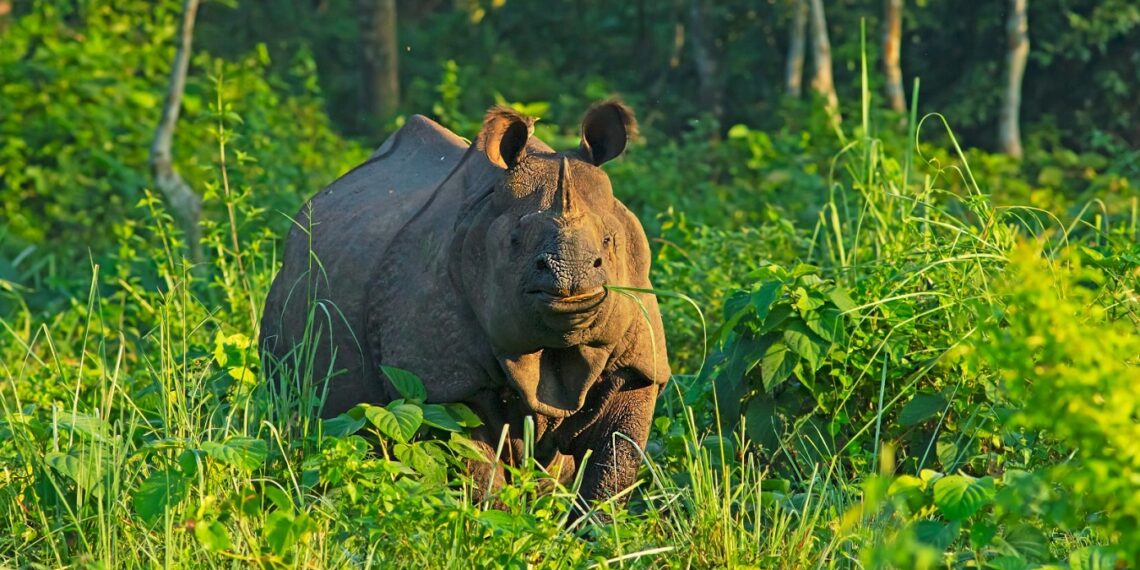GUWAHATI: On the eve of World Rhino Day, Assam, which proudly marked zero rhinoceros poaching cases in 2022, has reported two rhino deaths in Manas National Park and Kaziranga National Park this year till September.
Recognising the urgency of the situation and to bolster their fight against wildlife crime, both government authorities and concerned organisations are stepping up their efforts to combat this menace.
Collaborating closely with the forest department, the Assam government is resolutely defending its rhino population. Simultaneously, non-governmental organisations (NGOs) are actively engaged in mitigating wildlife crimes in the state.
One such NGO, Aaranyak, a biodiversity conservation organisation, has embarked on a crucial initiative known as D.E.T.E.R.S.© (Disrupt and End Trade of Endangered and Rare Species).
This initiative acts as an overarching platform, facilitating essential capacity building, workshops, meetings, and collaborations with various stakeholders – the judiciary, enforcement agencies, border security agencies, forest departments, and transportation agencies – to curb the menace.
D.E.T.E.R.S.© also fosters dialogue among these diverse agencies to streamline information flow and communication, expediting swift actions by enforcement agencies to effectively combat wildlife trade.
By providing actionable intelligence and alerting law enforcement agencies, D.E.T.E.R.S.© plays a pivotal role in deterring wildlife crimes and safeguarding the rhino population in Northeast India.
Earlier on September 19, KNP and Tiger Reserve organised an intensive training programme on RhoDIS India (Rhino DNA Indexing System). Held at the Convention Centre in Kohora, the training involved around 40 forest staff members from the Eastern Assam Wildlife Division, along with over 10 officers.
Covering various aspects of rhino crime investigation, the participants were educated on the intricacies of the RhoDIS India programme, adhering strictly to the Standard Operating Procedure sanctioned by the Ministry of Environment, Forest and Climate Change (MoEFCC).
Key components of the training included the deployment of field sampling kits for collecting biological evidence, ensuring a maintained chain of custody, and proficient utilization of the crime investigation kit.
In another proactive measure taken in August, 99 officials from Sashastra Seema Bal (SSB), India’s elite border guarding force, underwent a sensitisation workshop at the Recruit Training Centre in Salonibari, Tezpur. The workshop, titled “Preventing Wildlife Crime and Illegal Wildlife Trade,” witnessed the participation of senior officials and fresh recruits of SSB. They were briefed on the prevailing wildlife crimes and the pivotal role of border guarding forces in countering these threats.















